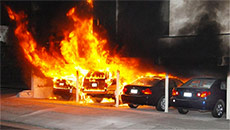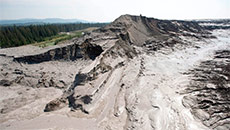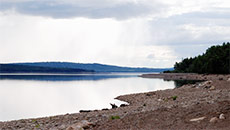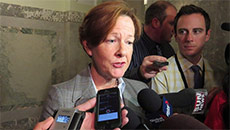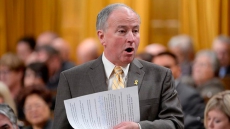Using untested Ebola treatments to help quell the current unprecedented outbreak in West Africa is ethical, the World Health Organization said Tuesday.
But the Geneva-based global health agency said countries that use experimental treatments have a moral obligation to collect data on those who are treated so the world can learn what works against Ebola — and which treatments to stop using, if any turn out to be unsafe.
The statement came following a daylong meeting Monday of an expert panel the WHO convened to advise it on the thorny ethical issues of using experimental drugs in this outbreak. It was comprised of ethicists — including University of Toronto professor Dr. Ross Upshur — a representative of a patient advocacy group and others.
While the statement may clear the way for additional use of experimental Ebola products, it made no reference to the fact that there are barely any supplies of any of them in stock. Making clinical grade experimental drugs is costly and in the early stages of drug development companies generally only make small batches.
A case in point: ZMapp, the product given to two American relief workers who contracted Ebola in Liberia. On Monday afternoon the company developing it, LeafBio of San Diego, Calif., said it had exhausted its supply of the product, components of which were created at Canada's National Microbiology Laboratory in Winnipeg.
It has been reported that a treatment course was obtained for an infected Spanish priest who was taken to Madrid for care. The priest, Miguel Pajares, 75, died Tuesday. The hospital where he was treated would not reveal if he had been given ZMapp before he died, the New York Times reported.
It was also revealed Tuesday that several doses — three, by the WHO's estimate — were sent to Liberia at that country's request. Experts have said it will take three or four months for another small batch of ZMapp to be made.
Dr. Marie-Paule Kieny, the WHO's assistant director-general for health systems and innovation, acknowledged during a news conference that for the time being supplies are tight.
Kieny said it is important not to create false hope that substantial quantities of experiment drugs and vaccines can be rushed to the affected countries now.
For now containment efforts will have to be the tried-and-true standards of Ebola control, she suggested: isolating cases, finding and monitoring their contacts for signs of infection and protecting the health-care workers tending to the sick. She and others have noted, though, that those approaches aren't working as well with this outbreak as they have in previous ones.
Kieny was ask if the distribution of the scarce doses of ZMapp had been fair — a question likely to be raised every time an experimental drug or vaccine is deployed in this outbreak.
With such small numbers of doses available, there could be no fair way to distribute the medicine, she replied.
The WHO will reconvene the panel, drawing in other experts as well, before the end of the month to work on additional questions about the ethical use of available drugs and vaccines and how to ensure that when they are used their efficacy is monitored.
In the meantime, attention will undoubtedly turn to two Canadian-made Ebola countermeasures: a drug called TKM-Ebola made by Tekmira Pharmaceuticals of Burnaby, B.C., and an experimental Ebola vaccine designed by scientists at the Public Health Agency of Canada.
Tekmira has said it would be willing to allow its drug to be used in the outbreak, though it has not revealed how many doses it has in hand and how long it would take to make more.
The West African Ebola outbreak currently involves four countries — Guinea, Sierra Leone, Liberia and Nigeria — and has claimed at least 1,013 lives since early March. Close to 40 per cent of all the people who have been known to have died from Ebola have died in this outbreak.
The WHO said that as of Aug. 9, there have been 1,848 cases in the four countries.

